Reefer Madness
Cautionary tale features a fictionalized take on the use of marijuana. A trio of drug dealers lead innocent teenagers to become addicted to "reefer" cigarettes by holding wild parties with jazz music.
Reefer Madness (originally made as Tell Your Children and sometimes titled as The Burning Question, Dope Addict, Doped Youth, and Love Madness) is a 1936 American film about drugs revolving around the melodramatic events that ensue when high-school students are lured by pushers to try marijuana—from a hit and run accident, to manslaughter, suicide, attempted rape, hallucinations, and descent into madness from marijuana addiction. The film was directed by Louis J. Gasnier and featured a cast of mainly little-known actors.
Originally financed by a church group under the title Tell Your Children, the film was intended to be shown to parents as a morality tale attempting to teach them about the dangers of cannabis use. Soon after the film was shot, it was purchased by producer Dwain Esper, who re-cut the film for distribution on the exploitation film circuit, exploiting vulgar interest while escaping censorship under the guise of moral guidance, beginning in 1938–1939 through the 1940s and 1950s.
The film was “rediscovered” in the early 1970s and gained new life as an unintentional satire among advocates of cannabis policy reform. However, critics have called it one of the worst films ever made. Today, it is in the public domain in the United States.
Plot
Mae Coleman and Jack Perry are a cohabitating couple who sell marijuana. The unscrupulous Jack sells it to teenagers over Mae’s objections; she’d rather stick to an adult clientele. Ralph Wiley, a sociopathic college-dropout-turned-dealer, and siren Blanche help Jack recruit new customers. Ralph and Jack lure high-schoolers Bill Harper and Jimmy Lane to Mae and Jack’s apartment. Jimmy takes Bill to a party where Jack runs out of reefer and Jimmy, who has a car, drives him to pick up more. When they get to Jack’s boss’ “headquarters”, Jimmy asks for a cigarette as Jack gets out and he gives him a joint. By the time Jack returns, Jimmy is unknowingly high; he drives away recklessly and hits a pedestrian. A few days later, Jack tells Jimmy that the man died of his injuries and agrees to keep Jimmy’s name out of the case—if Jimmy will agree to “forget he was ever in Mae’s apartment.” As the police did not have enough specific details to track Jimmy down, he indeed escapes punishment.
Ralph is arrested for Jack’s murder.
Bill, whose once-pristine record at school has rapidly declined, has a fling with Blanche while high. Mary, Jimmy’s sister and Bill’s girlfriend, goes to Mae’s apartment looking for Jimmy and accepts a joint from Ralph, thinking it’s a regular cigarette. When she refuses Ralph’s advances, he tries to rape her. Bill comes out of the bedroom and, still high, attacks Ralph. As the two are fighting, Jack knocks Bill unconscious with the butt of his gun, which inadvertently fires, killing Mary. Jack puts the gun in Bill’s hand, framing him for Mary’s death by claiming he blacked out. The dealers lie low for a while in Blanche’s apartment while Bill’s trial takes place. Over the objections of a skeptical juror, Bill is found guilty.
By now Ralph is paranoid from both marijuana and his guilty conscience. Blanche is also high; at one memorable point she plays the piano more and more rapidly as Ralph eggs her on. The boss tells Jack to shoot Ralph to prevent him from confessing, but when Jack arrives, Ralph immediately recognizes the threat and beats him to death with a stick as Blanche laughs uncontrollably in terror. The police arrest Ralph, Mae, and Blanche. Mae’s confession leads to the boss and other gang members also being arrested. Blanche explains that Bill was innocent and agrees to serve as a material witness for the case against Ralph, but instead, she jumps out of a window and falls to her death, traumatized by her own adultery and its role in Mary’s death. Bill’s conviction is overturned, and Ralph, now nearly catatonic, is sent to an asylum for the criminally insane for the rest of his natural life.
The film’s story is told in bracketing sequences at a lecture given at a parent-teacher association meeting by high-school principal Dr. Alfred Carroll. At the film’s end he tells the parents he has been told that events similar to those he has described are likely to happen again, then points to random parents in the audience and warns that “the next tragedy may be that of your daughter… or your son… or yours or yours…” before pointing straight at the camera and saying emphatically “… or yours!” as the words “TELL YOUR CHILDREN” appear on the screen.
Cast
Dave O’Brien as Ralph Wiley
Dorothy Short as Mary Lane
Kenneth Craig as Bill Harper
Carleton Young as Jack Perry
Lillian Miles as Blanche
Thelma White as Mae Coleman
Warren McCollum as Jimmy Lane
Walter McGrail as The Drug Ring Boss
Ed LeSaint as The Judge
William Royle as The Prosecutor
Josef Forte as Dr. Alfred Carroll
Mary McLaren as Mrs. Lane
Marin Sais as Mrs. Harper
Ed Mortimer as Mr. Harper
Pat Royale as Agnes
Lester Dorr as Joe, the Malt Shop Owner
Dick Alexander as Pete Daly, Pusher
Forrest Taylor as Blanche’s Lawyer
Ted Wraye as “Hot Fingers”
Dan Wolheim as Detective at the Lane Home
Edward Earle as Bill’s Attorney
Frank O’Conner as Jury Foreman
James Ard as Officer Chuckman
Harry Harvey, Jr. as Junior Harper
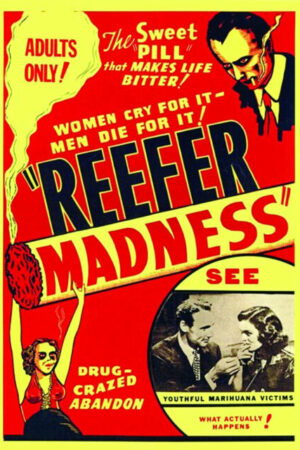
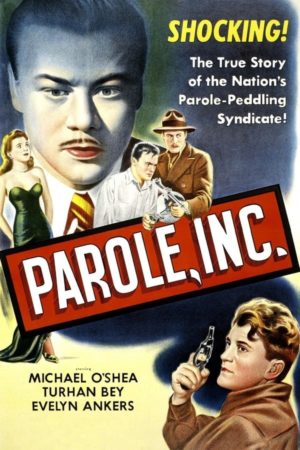
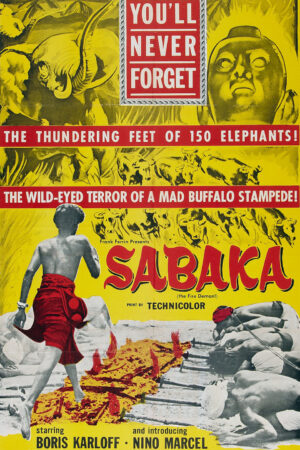
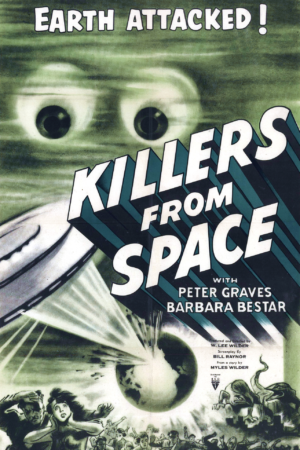

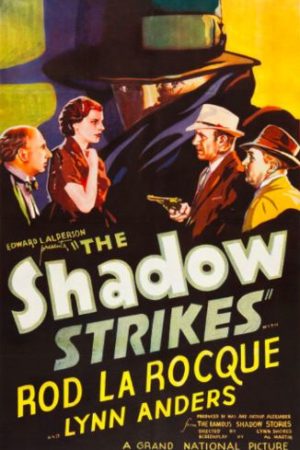
There are no reviews yet.